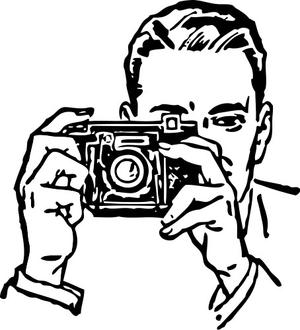How do I become a photographer?
Thoughts on how to be a professional photographer
Posted Jan 5, 2012

I recently got an email that went like this:
"I want to be a photographer. What should I do?"
After thinking about it for a bit, I came up w/ a block of ideas that I thought might help define and address the dilemma of becoming a professional photographer. If it's of any interest to other folks, I've posted it below in it's entirety:
When you say you want to be a photographer - I'm assuming you mean you want your income to come from photography. Photography is a broad field - there are many ways to make a living as a photographer. In general, successful photographers are observant and patient, regardless of their product. So, that is my first bit of advice to you - cultivate your awareness and practice being patient. This will influence the way you see the world - opening up a variety of photographic opportunities to you.
While you do this, take a lot of photos. TAKE A LOT OF PHOTOS. Some people think that we all have 20,000 bad photos inside us - get them out quickly. The faster you do, the better your work will become. While you are taking photos, note the kind of photos you find great joy from taking. What makes you happy? What makes you want to do it for the rest of your life? Take more of these kinds of photos and try to take photos you've never seen before. Find other photographers you respect and hold regular critiques with them, discussing the nature of your work and exploring new ideas.
This is all well and good - but at some point you need to make money - this means you'll have to market your skills to society. Traditionally there are 2 ways you can go - a commercial photographer or a fine art photographer. A commercial photographer is more likely to (and more quickly to) make their living entirely from the images they produce. It is far easier to find a niche - a space in society where there is a need for your photographs. That could be taking photos of products for sale in magazines, or photos of fashion trends, or photos of weddings. Many commercial photographers are great technicians, taking photos that someone else needs.
A fine art photographer - instead of filling a niche with their work - imagines something that does not exist and then produces it - most often based on a desire to comment on society, explore a different view of the world or try something no one has ever done. This style of photography is generally rewarding in ways other than monetary gain. Most fine art photographers who I know also teach or work another job to supplement their income. It can take years for a fine art photographer to find the clientele and market that allows them to exist solely on their artwork.
There are overlaps - some commercial photographers are great technicians and have a personal vision, exploring fine art themes - likewise, some fine art photographers can be recruited by brands to boost personality. The similarity between the two is that each markets themselves in a way that will result in the sale of their work. Both require research, networking and promotion. In this way, being a photographer is like being a business man - any entrepreneurial skills you have will come in handy.
Likewise, photography is one of the areas where 'who you know' is very important. If you can get in with a good photographer and volunteer your time, maybe they'd eventually hire you on as an assistant - while you assist, you'll gain lots of great knowledge and experience.
Figure out what you do best and stick to it. This means breaking down your product into pieces and figuring out what you can provide and what you're dependent on others for. If you want to offer the best quality product, you may need to partner with another reliable and respected business. This means you might be outsourcing printing, framing or lighting. If you can find others who are also at the top of their game, your clients will be reassured that you're not being stretched too thin and they're getting the best product from a professional source.
In the end, what will continue to get you business is trust. If your clients trust your work and believe in you as a person, then word of mouth advertising is the best (and least expensive) way to get more opportunities. Every job you do doubles as advertising for your business. If you go out of your way to please your clients, you'll turn them into fans who'll talk you up to their friends and colleagues.